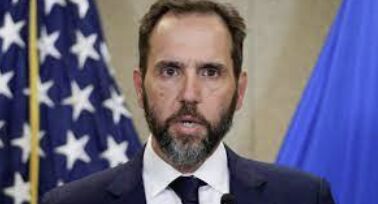Supreme Court to Decide Fate of Trump's Trial and Capitol Riot Prosecutions
The Supreme Court has agreed to hear a crucial question regarding federal election-interference and the January 6 Capitol assault, potentially complicating Trump's trial and special counsel's efforts for accountability.
The Supreme Court has agreed to hear a crucial question in the federal election-interference case against former President Donald Trump and the numerous prosecutions arising from the January 6 assault on the Capitol. The question at hand is whether the government can charge defendants in these cases under a federal law that criminalizes the corrupt obstruction of an official congressional proceeding. The decision to take up this case has significant implications, potentially complicating and delaying Trump's trial, which is currently scheduled for March.
Furthermore, the Supreme Court's ruling, expected to be delivered by June, could severely hamper special counsel Jack Smith's efforts to hold the former president accountable for the violence committed by his supporters at the Capitol. The case that the Supreme Court has agreed to hear centers around Joseph Fischer, who is accused of assaulting the police while Congress was in the process of certifying the results of the 2020 election. Fischer is among the hundreds of rioters who disrupted the certification proceedings in the Capitol and was charged with obstruction.
When the obstruction law was initially enacted in the early 2000s, its purpose was to combat corporate malfeasance by criminalizing actions like destroying documents or tampering with evidence. However, defense lawyers representing the January 6 rioters argue that prosecutors have stretched the law's scope to cover the violence that erupted at the Capitol and disrupted the election certification process. The question of whether the obstruction law can be applied to those who interfered with Congress' ability to count electoral votes on January 6 has been brought before various district court judges in Washington. Ultimately, all judges rejected the argument that the law should not apply in such cases.
The Justice Department appealed one judge's ruling and was successful, with a three-judge appeals court panel agreeing that the obstruction charge can be levied against individuals who impeded Congress' ability to count electoral votes on January 6. However, the panel differed on how to define the term "corruptly" within the law, as it poses the risk of encompassing constitutionally protected activities such as protests, lobbying, and advocacy. The actions of former President Trump have been a significant factor in these legal debates. Some lawyers argue that Trump's efforts to persuade conservative senators to stall the proceedings on January 6 could be seen as typical legislative foot-dragging or as part of a corrupt attempt to prevent the electoral vote tally altogether.
Special counsel Jack Smith has filed a criminal case against Trump, claiming that he interfered with the electoral vote certification process based on fraudulent claims he knew to be false. Joseph Fischer, in his petition to the Supreme Court, concedes that the obstruction statute applies to some congressional proceedings but asks the justices to determine whether it includes acts unrelated to investigations and evidence. Along with addressing Fischer's question about the physical destruction of documents, the Supreme Court may also delve into defining "corrupt efforts to impede official proceedings," such as sessions of Congress or grand jury investigations.
A small number of January 6 defendants have been acquitted of obstruction charges as judges ruled that the prosecution failed to prove that they acted "corruptly." Some defendants were unaware that a congressional session was taking place that day or believed it had already concluded when they entered the Capitol. The Supreme Court is expected to conduct oral arguments on this matter in the spring, with a decision anticipated by the end of June.




